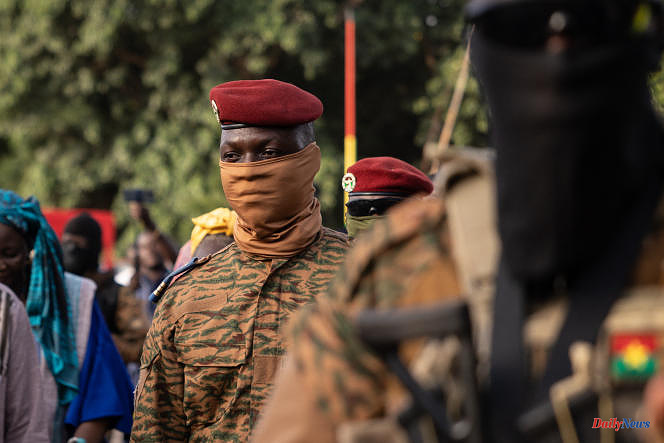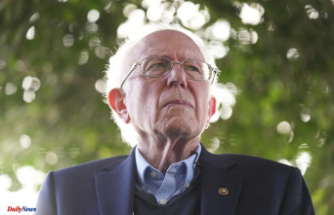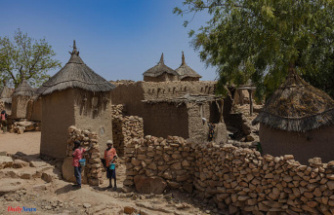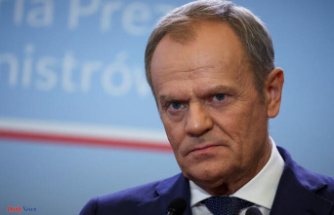The balance sheet is still provisional, but it is one of the most worrying that Burkina Faso has experienced in recent years. On Friday February 17, fifty-one soldiers were killed during "intense fighting" with an "armed terrorist group" between Oursi and Déou, two localities located in the north of the country, about fifty kilometers from the Malian border, according to a statement from the Directorate of Communication and Public Relations of the Armed Forces (DCRPA), released Monday, February 20.
"Several soldiers are still wanted", underlined the army before inviting "the populations to refrain [from relaying] reports which are not corroborated by any observation on the ground". The Facebook pages and Twitter profiles of specialists in jihadist groups in Burkina Faso, like the humanitarian and security sources contacted by Le Monde, mention more than seventy Burkinabe soldiers killed.
All attribute this attack, which had not yet been claimed Tuesday evening, to the Islamic State organization in the Greater Sahara (EIGS), a jihadist group affiliated with the Islamic State organization, which is progressing in the north and east of the Burkina Faso since its creation in 2015. The province of Oudalan, where Déou and Oursi are located, was the first area of the country to suffer these attacks, in 2016. Seven years later, the EIGS, customary ambushes of scale against the positions of the Defense and Security Forces (FDS) and its massacres of civilians, continued to extend its influence. To the point of controlling, with its rival, the Support Group for Islam and Muslims (affiliated with Al-Qaeda), nearly 40% of the territory.
"The fight is bitter"
Additional signal of the offensive initiated by the jihadists in Burkina Faso, an army position was again heavily attacked on the night of February 20, in Tin-Akoff, 70 kilometers north of Déou, along the Malian border. Here again, the balance sheets diverge according to the security sources, some evoking fifteen dead, others several dozen soldiers killed and many missing. The staff had not yet published an official report, Tuesday, February 21.
In Ouagadougou, the capital, diplomats, humanitarians and analysts draw a parallel between these attacks and that of Inata, which had bereaved the Burkinabe army and shocked the whole country, in mid-November 2021. According to the authorities, fifty-seven people had been killed during the assault launched by a terrorist group on a gendarmerie post, while many soldiers were missing. It was the deadliest attack ever recorded against the Burkinabe FDS since the start of jihadist expansion in the country in 2015. Until the offensives carried out in recent days in Tin-Akoff and between Déou and Oursi .
At the end of 2021, the attack on Inata precipitated the fall of President Roch Marc Christian Kaboré. Deemed unable to deal with the security threat, he was removed from office in January 2022 by Lieutenant-Colonel Paul-Henri Sandaogo Damiba's coup. Eight months later, on September 30, 2022, the latter was in turn overthrown by a putsch fomented by Captain Ibrahim Traoré, after being accused, like his predecessor, of not having been able to face the enemy.
Having become president, Captain Traoré promised the people to overcome this terrorist threat which has killed between 10,000 and 12,000 people in seven years. "The fight is bitter" and "the fight is strewn with pitfalls", he acknowledged, in a message published on the Facebook page of the presidency, on the night of Monday to Tuesday. Since then, the army's land and air operations have continued. According to the DCRPA, one hundred and sixty "terrorists" have already been "neutralized". Excerpts from drone videos showing strikes were subsequently released by the general staff, while the DCRPA called on all the FDS to remain mobilized, stressing that it had won "important victories in recent weeks".
"The End of the State of Grace"
Engaged under the leadership of Captain Traoré in an offensive counter-terrorism strategy and based on arming civilians, the army succeeded in retaking towns such as Solenzo and Falagountou between December 2022 and mid-January 2023. But, in the face of these troops, the jihadists have also moved up a gear. The pace of attacks has accelerated: between 30 and 40 per week on average now, compared to 20 to 30 a year ago, according to security consultant and former gendarme Mahamoudou Savadogo.
Presented by some Sahel specialists as retaliatory operations for the all-security strategy claimed by Ouagadougou, the latest attacks "show the growing tactical capacity of terrorists and challenge the authorities' narrative that terrorist groups are on the run" , analyzes Fahiraman Rodrigue Koné. This researcher at the Institute for Security Studies in Dakar fears that these events "sound the end of the state of grace" for the junta: "Until now, a large part of the public had given him his white -seing and waited to see if his new strategy would yield results, before judging. The latest attacks have sown doubt. »
For ten days, images circulating on social networks show violent arrests and alleged summary executions, attributed by human rights defenders and security sources to Burkinabe soldiers. Some videos viewed by Le Monde show civilians, including children, blindfolded and blindfolded, face down, surrounded by men in military or civilian clothes. On another, a Burkinabé films children, lying in their blood, some half-naked, next to military vehicles. "We wait for whoever is going to move and we kill him," he blurts out. Seconds later, another man in military uniform throws a stone at the head of a child. Contacted, the DCRPA did not respond to requests from Le Monde.












